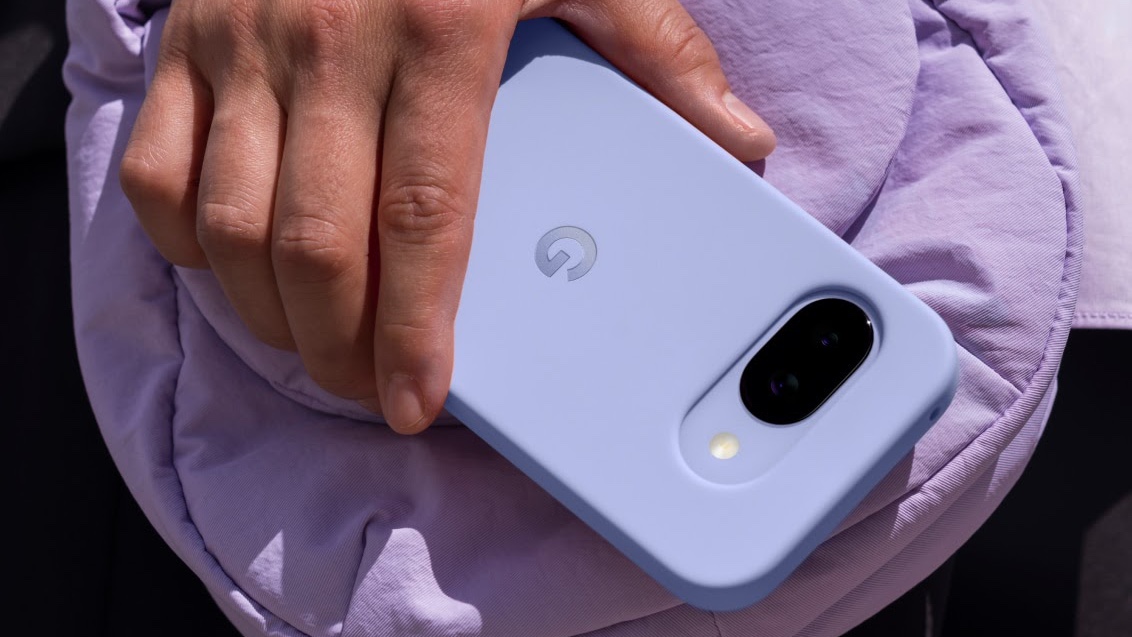How to clean cloudy glasses and make them gleam again
Have your glasses seen better days? Here’s how to clean cloudy glasses
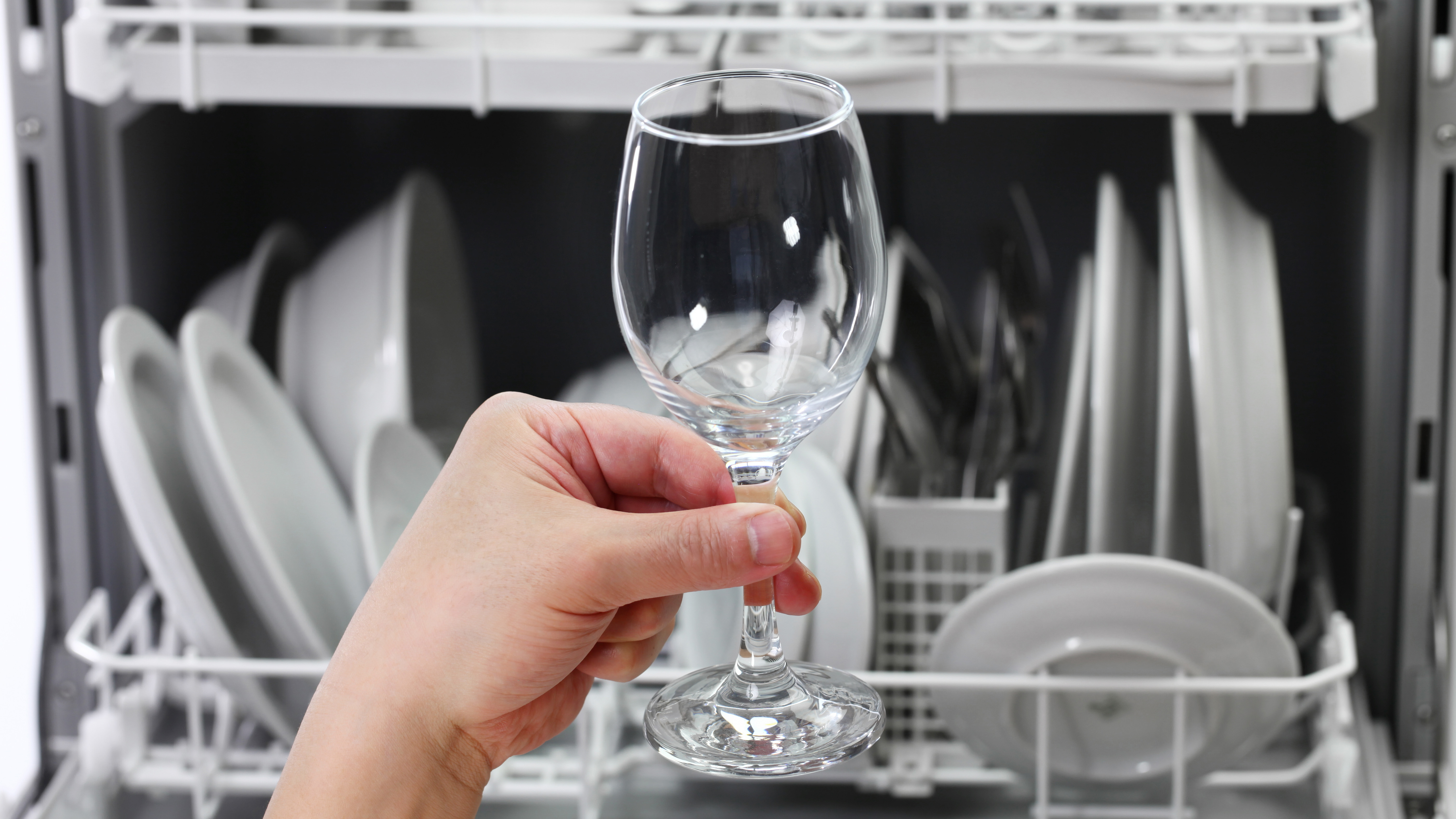
When it comes to washing up, nothing helps out quite as much as the best dishwashers. Simply load your plates, glasses and cutlery, and a couple of hours later, everything comes out squeaky clean. But, even if your dishwasher handles stains with ease, one thing many dishwashers can unfortunately produce is cloudy glasses. This is one of the negatives when it comes to using a dishwasher vs washing by hand.
This is quite a frustrating by-product of using the dishwasher — much like rusty cutlery. It doesn’t wash away easily and your once pristine glassware appears well-used and tired as a result. The good news is that there are steps you can take to restore your once crystal-clear drinking glasses. Here, we will explain exactly where this substance is coming from, how to effectively remove it and how to stop it from coming back. Here's how to clean cloudy glasses.
Be sure to also check out 13 things you should never put in a dishwasher and how often should you clean your dishwasher.
Why is the glass cloudy?
Ultimately, your glasses are cloudy as a result of the hard water they’re washed in —specifically because of the minerals the water leaves behind. Essentially, calcium and magnesium are combined to form limescale on the glass, which can appear in small white spots or even as a milky layer that covers the surface. Your dishwasher can end up playing host to more hard water minerals over time, accentuating the problem with each cycle. As a result, you’re more likely to find this particular problem around cities and hard-water areas. It's also a reason to know how to clean your dishwasher from time to time.
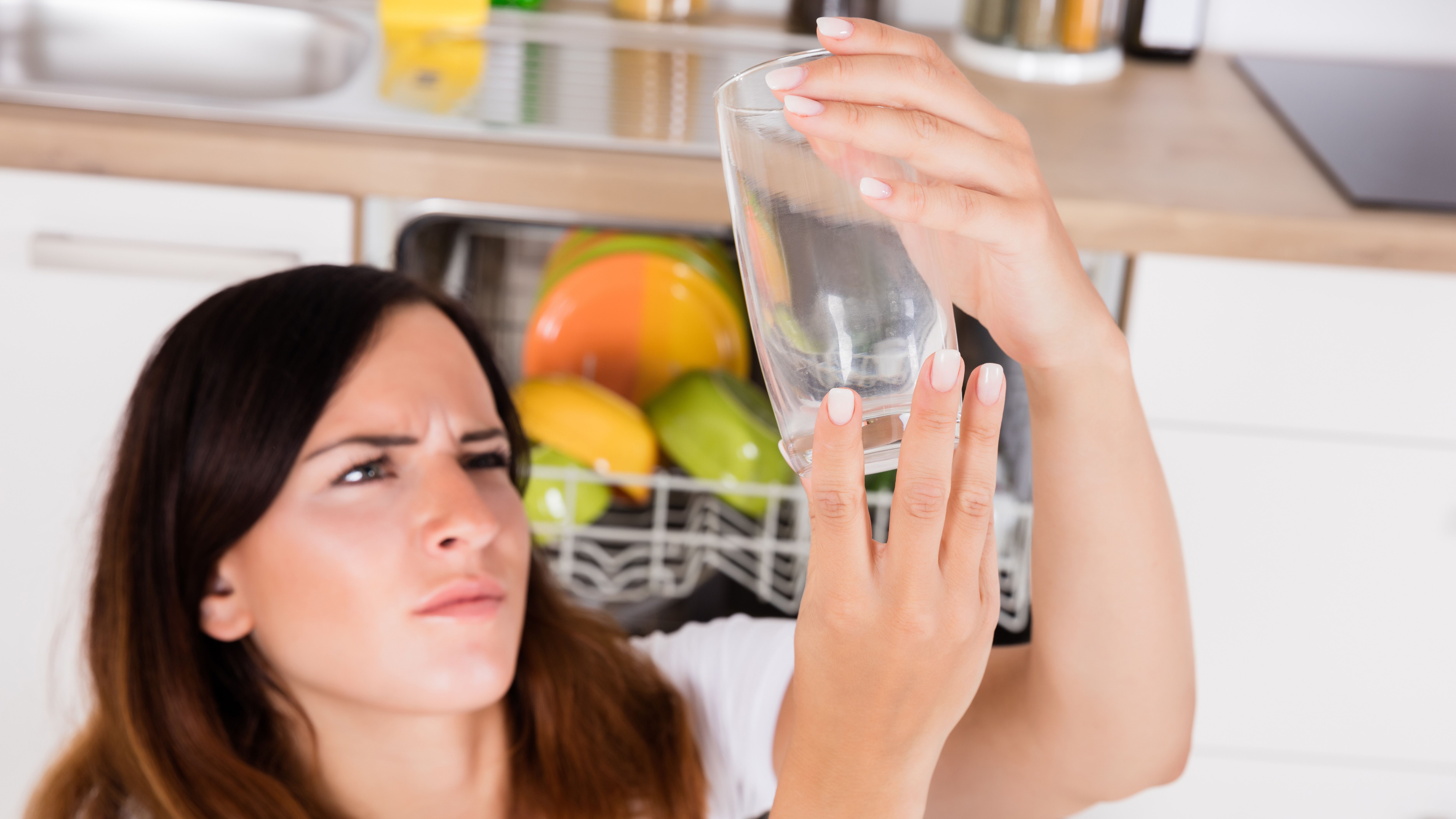
However, just because you’re using soft water doesn’t mean you’re out of the woods. Soft water is actually quite corrosive because it lacks the minerals you will find in hard water — that means it will actually scratch and etch the glass much more quickly, causing irrevocable damage. It’s important to understand the difference between each of these problems and to recognize which is which, so you can take the best course of action.
How to clean cloudy glasses
If you’re dealing with cloudy glasses as a result of hard water, simply follow these steps:
1. Check what you’re dealing with — First, make sure you are in fact dealing with mineral deposits from hard water. Dampen a clean microfiber cloth with white distilled vinegar, and try rubbing away the stain. If it starts to fade, you can continue with this method. If not, move to the final paragraph in this section.
Sign up to get the BEST of Tom's Guide direct to your inbox.
Get instant access to breaking news, the hottest reviews, great deals and helpful tips.
2. Soak your glasses — You’re going to need an ample amount of white distilled vinegar for this method, so make sure you stock up. Fill a washing up bowl with the vinegar (warm it for extra power) and soak the glasses for 10 minutes, making sure they’re completely submerged. If you’re only cleaning one or two glasses, you could alternatively soak a couple of microfiber cloths in the vinegar and wrap them around the glass to soak — this will definitely save on vinegar!
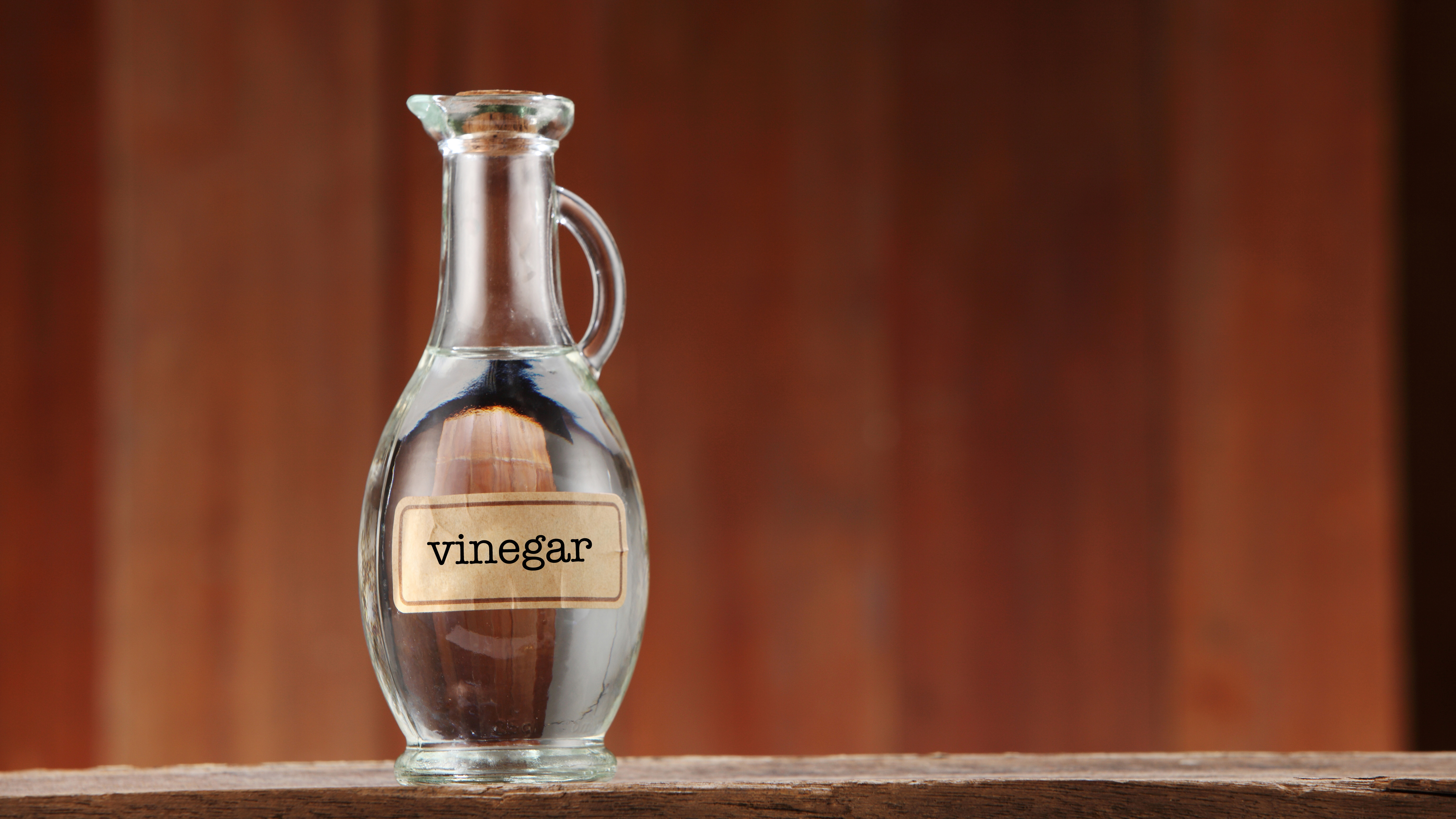
3. Scrub the residue away — Once time is up, you need to give your glasses a scrub using something which won't scratch. A silicone sponge works well for this, such as the Geloo Silicone Sponge Dish Sponge ($8.99, Amazon). The cloudy deposit should come away easily. If it doesn’t, leave your glasses to soak for another 5 minutes.
4. Wash the vinegar away — Now that your glasses are free of limescale, you can wash the vinegar away using warm, soapy water.
5. Dry and store — Dry your glasses thoroughly using a microfiber cloth and take a moment to admire them before storing away.
If the above seems like too much effort, you can alternatively buy a dedicated detergent to remove the film in your dishwasher, such as the Lemi Shine Dish Detergent Booster ($17.94, Amazon).
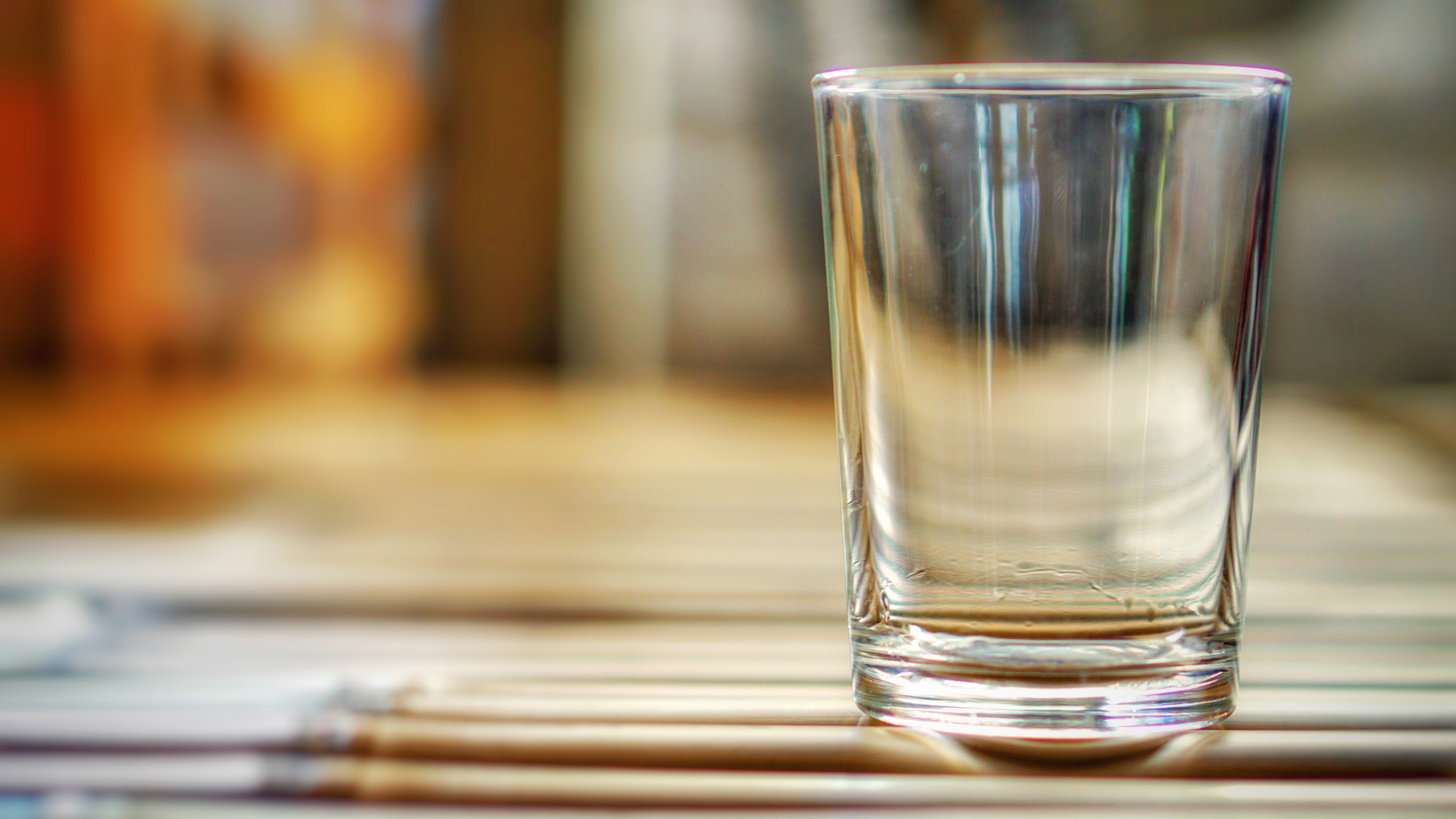
If your glasses still appear marked after you try the above method, they may be scratched rather than cloudy. This can be a result of over-exposure to soft water or it may simply be wear and tear — in either case, it won't be removable. Recycle any unwanted drinking glasses, or simply use them when guests aren’t around. Any glass with cracks or chips should of course be disposed of.
How to keep cloudy glasses from coming back
While there’s no coming back from scratched glass, there are habits you can change to prevent both limescale and etching over time:
- Make sure your salt levels are topped up in your dishwasher — this helps soften the water if you’re dealing with excessive limescale.
- Likewise, you should keep your rinse aid topped up. This literally helps the water rinse off at the end of the cycle, so the minerals won’t dry to the surface as easily.
- For best care, try handwashing instead. This is generally much more gentle on glassware, and there will be less scratches and cloudy residue as a result.
- Buy a water softener system if your water is too hard in general. But, be careful not to set it too soft, otherwise the water will become corrosive.
- Limescale develops more quickly in hot water, so you can reduce its impact by lowering the temperature of your dishwasher cycle. Only subject the glass to what’s required, so avoid pre-rinsing ideally and stick to the glassware cycle as well.
- Make sure you use the appropriate amount of detergent — too much will leave residue behind.
For more dishwasher tips and tricks, check out our guides on 10 things you never knew you could wash in a dishwasher, I wouldn’t buy a smart dishwasher or washing machine — here’s why and I tried this TikTok cleaning hack using a dishwasher tablet — here’s what happened.

Katie Mortram used to be a Homes Editor for Tom's Guide, where she oversaw everything from kitchen appliances to gardening tools, as well as smart home tech. Specializing in providing expert advice for cleaning and home manintenance, she now works as Household Advice Editor for Good Housekeeping.
